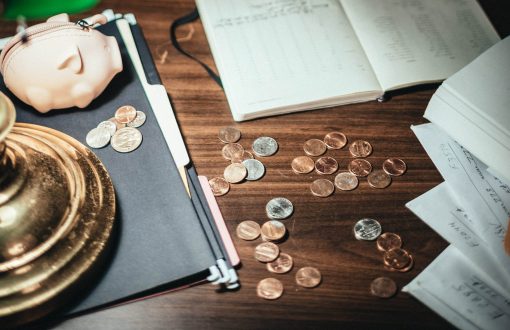What Is Considered As A Good Price When Selling Your Atlantic Property?

“How much is my home worth?” That’s the first question most homeowners consider when the time comes to sell. Luckily, unless you’re upside down on your mortgage, your home is probably worth significantly more than you paid for it. Across the U.S., residential property values are on the rise. This includes places like in Georgia, Atlanta.
Many experts predict that home prices will continue to rise in Atlanta in 2021, which is good news for homeowners. Unfortunately, all of these positive home value headlines lead some sellers to have over inflated expectations.
Then, instead of asking the advice of a top real estate agent, these sellers approach the list price decision with these mistaken assumptions:
Some expect to get the same amount as friends who sold in other neighborhoods. Others believe they can add the full cost of upgrades on top of the home’s current value. And a few, who consider their home to be the best on the block, think that they can get as much as they want—especially in a seller’s market.
Unfortunately, these common mistakes lead to overpricing and that can tank your sale even in the hottest real estate market.
No matter how big the current buyer pool, overvaluing your home almost guarantees that it’ll sit on the market or sell for less than it would’ve had you priced it right in the first place.
What is the average price of homes in Atlanta in 2021?
Home prices were through the roof in 2020 and the pace of appreciation seems to continue in 2021. March’s sales were 32.5% higher than in February, which is a positive sign even though buyers are facing some real challenges with low inventory levels. The median sales price rose 15.8% year over year and 5.1% month over month to $330,000, according to the Atlanta Realtors Association.
Record-low interest rates and are enticing buyers into the market and giving them more buying power. Even as home values continue to rise, low mortgage rates give buyers more buying power. It’s not only low interest rates pushing up prices to record highs. A lack of homes for sale is a big part of it too. 2021 will be defined by low interest rates and low inventory, a perfect storm that will continue to push home prices higher.
Despite the pandemic, January 2021 residential sales were at 4,421, a slight increase of 1.0% from the previous year. Even with sales increasing, the market is constrained by the ongoing decrease in available inventory as it was further reduced in January to 1.2 months supply. Inventory of homes for sale dropped to 1.2 months in metro Atlanta, according to the Atlanta Realtors Association. That’s almost 5 months less than what is considered a balanced real estate market.
The median home price in metro Atlanta hit $390,000 in January 2021, an increase of 17.9% from last year. In April 2021, the typical home value of homes in Atlanta was about $325,929. This value is seasonally adjusted and only includes the middle price tier of homes. Atlanta home values have gone up 10.6% over the April of last year.
How to Price Your Property in Atlanta?
Well, work around the current average price of Atlanta houses. However, it is important to consider the following aspects:
- Location
There’s more than one way to look at location when it comes to assessing its impact on house value. Your home’s proximity to amenities like schools, entertainment and even a coffeeshop can make it more desirable to buyers. Whether your home sits on a busy street corner or at the end of a quiet cul-de-sac can also raise or lower its value. But that’s not all.
Facts that affect your neighborhood’s reputation, like economic and crime statistics, also need to be factored into your home’s value. The best agents also consider the larger market.
- Condition
No two houses are alike, even if they have identical floor plans. Any repairs or refurbishments you make, like replacing an H-VAC system or replacing old carpeting, impact your home’s value.
Your home’s condition has such a major impact on its value that some buyers will pay up to $15,000 more for a well-maintained home. If it’s not in good shape, your home will still sell, but you’ll have to list it at a lower price. You may even need to add an as-is clause into your sales contract.
Aside from affecting its ability to entice offers from buyers, your home’s condition also factors into the appraisal. Appraisers evaluate the house’s appearance, repairs needed, visible deterioration and general wear and tear to place your home in one of the six property rating categories.
- Updates
Call them repairs, remodels, renovations or upgrades, any updates you make to your home prior to selling will have a positive impact on its value. Similar to condition (in fact, appraisers factor updates into your condition rating), updates generally refer improvements made just prior to selling in order to increase the list price.
Unfortunately, not all updates are equal. According to Okun, “It’s not a mathematical equation. It’s not what you bought the home for plus the money you’ve put into it and then it’s worth that. Certain renovations and remodeling projects have a better return of investments.”
Many sellers discover too late that they won’t make back the full amount they invest in most updates. In its 2017 Remodeling Impact Report, the National Association of Realtors (NAR) found that the majority of remodeling projects that buyers want only offer a return of between 50-70%.
That makes deciding which, if any, improvements to make a tricky task. It comes down to whether or not the cost of the update is worth the increase in your home’s value.
If your property is in a good location, in great condition, and is fully updated, then you can definitely price your property equal or more than the 2021 median listing price per square foot in Atlanta which was about $248.
Is Underpricing a Smart Idea?
Overpricing is a bad idea even in a seller’s market. We as the seller set the list price, but the market determines the value. If a home is overpriced, it doesn’t take longer to sell, it just won’t sell until it gets to the right price.
But where overpricing will turn buyers off, underpricing has the opposite effect.
In a buyer’s market, listing your home below market value helps it stand out from the crowd. Bargain hunting buyers are enticed to make offers on homes that are a good deal—as long as they’re not too much of a steal. If you go way too low, buyers may suspect that your home has major maintenance problems.
Pricing too low in a seller’s market can also become a problem. Grossly underpriced properties in a hot market says that the seller is angling for an all out bidding war and that may scare potential buyers away.
However, in most cases, moderately underpricing isn’t a major concern because the market dictates value. Sellers who list at just below the competitors, will spark a bidding war and competing offers will drive the price up to and above the current market value.
Underpricing is also a good strategy when you want to expand your buyer pool. As Okun explains:
“We want to be under a certain price point to get the most interest for the home. If you have a million dollar house, you don’t price it at $1.35 million or $1.25 million. You price it at $995,000 because then you capture every buyer looking up to the million dollar mark. You cast a much wider net and expose the home to a larger buyer pool.”
While slightly underpricing is a strong strategy, it’s not the only way to go.
How to Tell When Your Home Price is Right?
If no one ever priced their home for more than recently sold comps, home prices would never rise, right?
According to Okun, “This is a business of exceptions. Every home is so different. I don’t have an across the board, slightly underprice strategy. We don’t want to overprice and we don’t want to underprice, we want to price it right. And if we price it right, we’ll get more interest and more offers.”
So how exactly do you determine the right price? Ask your agent.
Before settling on a pricing strategy, your agent will do a Comparative Market Analysis (CMA) to evaluate recent and historical home sale trends in your area. Then they’ll assess the various factors like location, condition, updates and current competition before they recommend a list price.
In some situations, your agent may even suggest listing for more than recent comps sold for. For example, if local comps are older than six months to a year old, if homes rarely come up for sale in your neighborhood, or if your property has unique or historic features, then listing slightly above market value may be the right pricing strategy.
In a seller’s market, a home that’s priced right will get one or more offers within a few days. In cooler markets, you’ll get a number of showings within a few weeks and an offer within a few months.
But there’s no need to leave the entire pricing process up to the agent. It’s always a good idea to get informed before agreeing to a list price. Well informed sellers research nearby home values, gather their financial and mortgage data, or check their homes’ estimated value online.
With the assistance of a top notch agent and the reassurance of your own home value research, you’ll soon be ready to set the right list price for your home.





